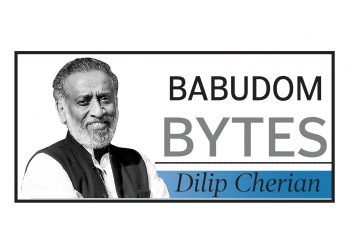Rajesh Agrawal, who will soon become Commerce Secretary, is in charge of India’s trade talks with the United States, which have resumed. Agrawal, an IAS officer from the 1994 batch, is accustomed to difficult negotiations. With a career that straddles trade promotion, exports, and policy reform, he has been India’s go-to negotiator from ASEAN to Australia to the Indo-Pacific framework. He brings both data expertise and strategic intuition to the table, having earned degrees in international business, operations research, and statistics.
However, this most recent round with Washington, which began on September 16 in Delhi, is not your typical exercise. Citing India’s imports of oil from Russia, the US imposed 50% tariffs on Indian goods and is now seeking greater access to India’s dairy and agricultural markets. For us here, safeguarding the millions of farmers whose livelihoods depend on these industries is more important than merely enacting new laws.
Therefore, the negotiation is about defining the boundary between domestic survival and international trade pressures, not just about tariffs. India’s defensive posture must be transformed into bargaining power by Agrawal to prevent the nation from giving up important territory in the name of “market access.”
Agrawal will be baptised by fire as he gets ready to assume official leadership after September 30. The world is watching to see if India can change from being reactive to dictating the rules of the game, and the stakes are high and the time frame is short.
MHA prepares new faces for CAPF leadership
An unusual shuffle is about to take place at the highest levels of India’s Central Armed Police Forces (CAPFs). With the BSF DG scheduled to retire in November and the DGs of ITBP and CISF retiring this month, the Ministry of Home Affairs is reportedly quietly considering its options. A new generation of leaders is expected to take over since it appears that there will be no extensions for departing IPS officers.
Among the probable selections, Vitul Kumar from the CRPF seems destined to head the ITBP, and B Srinivasan of the NSG appears ready to take over as CISF chief. Both are seasoned officers who possess the operational and strategic expertise that these forces require. Even that decision is up in the air, though BSF DG Daljit Singh Chawdhary might still receive a temporary extension.
The meticulous planning that goes into the choices is what really sets these changes apart. The careful balancing act between cadre, experience, and merit is being highlighted by the consideration of senior IPS officers from AGMUT, UP, and other cadres representation that the MHA must maintain.
Leadership is important to the forces themselves. From border security to industrial protection, the CAPFs work in high-stakes, high-pressure situations. The stakes are far from low, even though these appointments might appear to be just another routine affair. It will be evident in the coming weeks if the MHA’s decisions can keep up with the challenges these forces encounter on the ground.
Babudom or ballot?
At what point does a babu begin practising his campaign speeches and cease being a babu? That line is not only hazy in contemporary India, but it is almost imperceptible. In the name of “continuing public service,” civil servants, retired or not, are lining up to exchange their notings for netagiri.
Take a look at Bihar. The state has turned into a VRS clearance sale with elections approaching. S Siddharth, a senior IAS officer who is scheduled to retire in 2025, couldn’t wait that long and is already predicted to receive a JD(U) ticket. Under the guidance of another retired police officer, six more retired IAS officers have joined Prashant Kishor’s Jan Suraaj Party.
Furthermore, Bihar is not by itself. With former Ambassador Taranjit Singh Sandhu, Aparajita Sarangi, K. Annamalai, and even Odisha’s VK Pandian, who seamlessly transitioned from an IAS officer to a BJD strategist, the 2024 Lok Sabha elections appeared to be a reunion of babus. The steel frame now resembles a springboard more.
The attraction cannot be denied, though. Because of their administrative expertise, demeanour of respectability, and gravitas, parties adore these former officers. Furthermore, many people sincerely think that politics allows them to “serve the people” without being constrained by red tape. Noble words, indeed.
However, honestly, many people begin soft launching their political careers while still employed, making compromises to appease their future superiors. The cornerstone of administration, neutrality, is thrown away like yesterday’s file. For this reason, it is not only desirable but also unavoidable to take a “cooling-off” period before entering politics. If not, the legendary steel frame of India runs the risk of becoming a political trampoline. And who is left to ensure that the game is fair if the referees are also players in secret?
By Dilip Cherian
